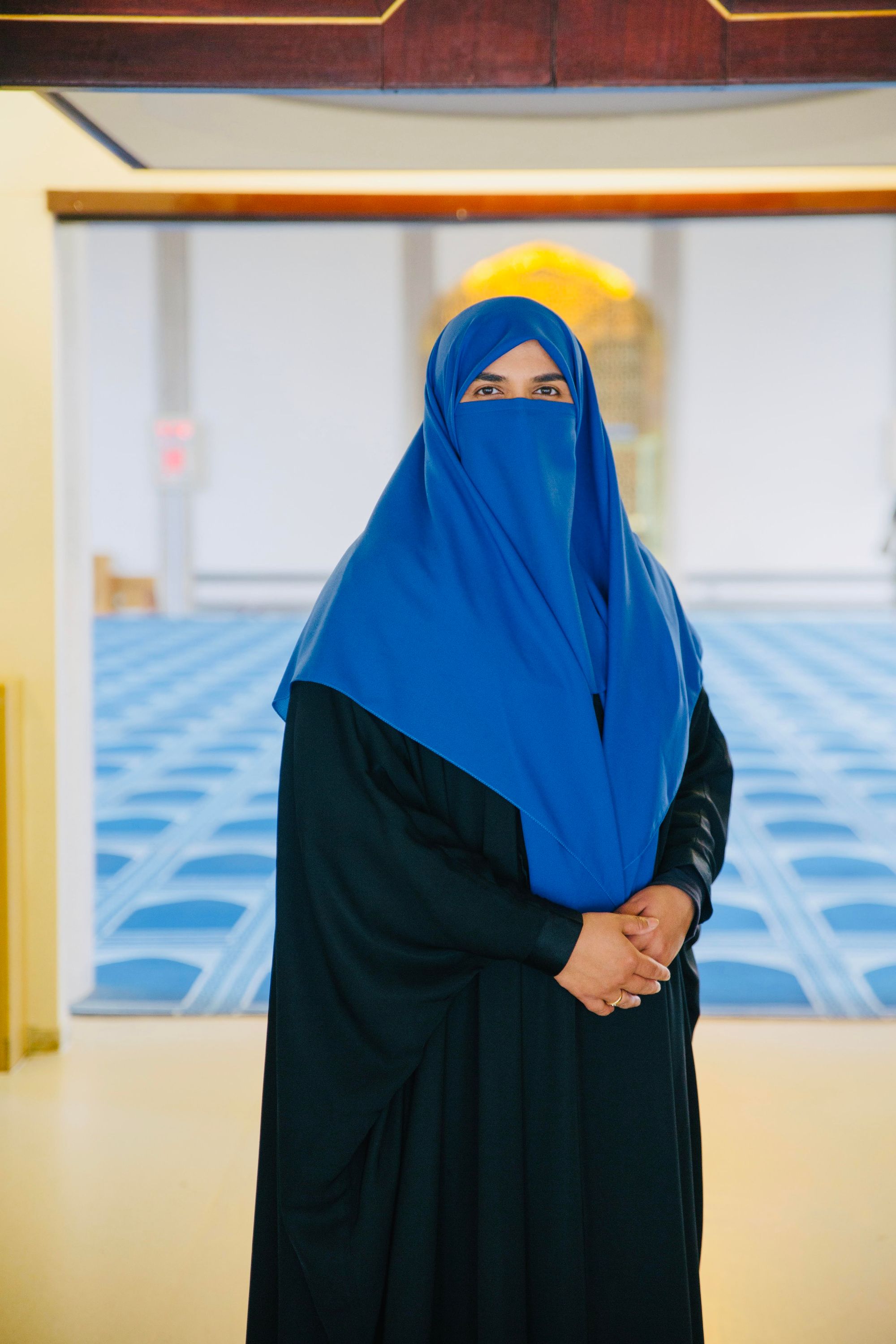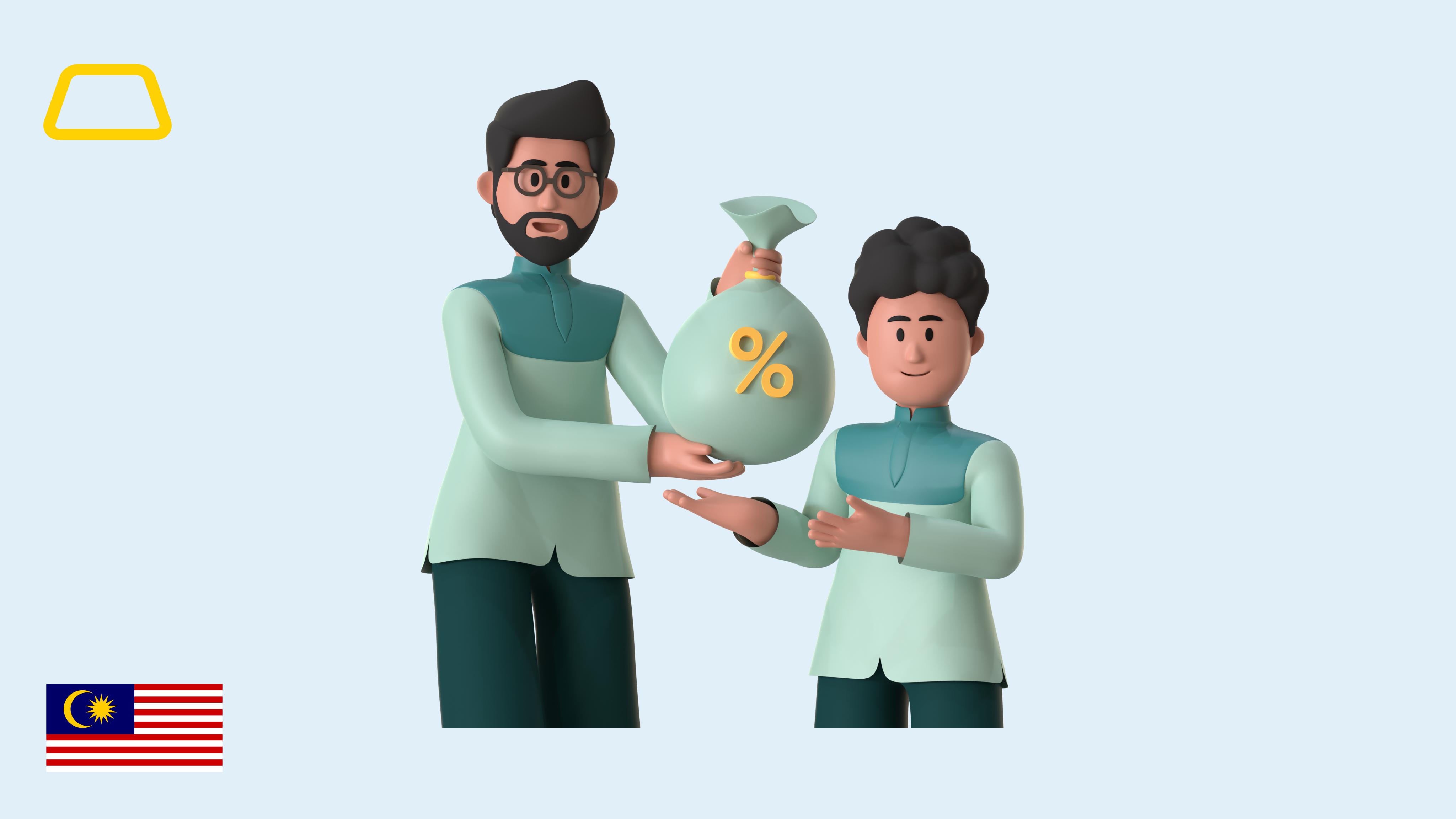What is the best Mahr in Islam

The Mahr represents a significant element of the marriage contract, serving as a tangible expression of financial support and protection for the bride. It's like a special gift that the groom gives to his bride. In this article, we'll delve into what the Mahr means in Islamic marriages, why it's important, and how much is considered appropriate.
What is the Mahr?
The Islamic Mahr is “a sum of money or other property which becomes payable by the husband to the wife as an effect of marriage.” It is a claimable right of the bride, that may be specified or unspecified, and that she may voluntarily relinquish if she wants, fully or partly.
However, if the Mahr is not specified or mentioned at the time of marriage, the marriage contract is still considered valid and a Mahr is still due. This is why the Mahr has been called an ‘inalienable’ right of the wife.
The Mahr is sometimes mistranslated as ‘dowry’, but a dowry is what passes from the woman’s side to the man’s side in some cultures and is not part of Islamic law. In fact the giving of such dowries is an un-islamic practice that some Muslim cultures have unfortunately adopted from non-Muslim cultures.
A more correct translation of Mahr would be the ‘dower’, which is an obligation in the form of anything of value under the shari’ah, paid by the groom to the bride at the time of marriage.
The Mahr is mentioned in the Qur’an and the teachings of the prophet ﷺ. The Qur’an talks about the importance of giving a dower to the bride in Surah An-Nisa (4:4), where Allah SWT says:
And give the women (on marriage) their dower as a free gift; but if they, of their own good pleasure, remit any part of it to you, Take it and enjoy it with right good cheer. [Qur’an 4:4]
The Prophet ﷺ said:
“Go and look for something (as Mahr) even if it is a ring of iron.” [Bukhaari 5121 and Muslim 1425].
What is the purpose of the Mahr
The Mahr is designed to honour marriage and fulfils a number of symbolic and practical purposes. Firstly, the Mahr serves as a symbol of the husband's commitment and responsibility towards his wife. By fulfilling the obligation of mahr, the husband acknowledges his duty to provide for and protect his wife financially. This recognition fosters a sense of respect and mutual care within the marital relationship and can be a source of comfort to a woman as she enters a new household.
Secondly, the Mahr can provide the wife with some independent financial security, whereby this amount becomes her exclusive property, separate from the husband's assets, giving her something to fall back on should things not go as planned.
Lastly, Mahr can act as a safeguard against the exploitation or mistreatment of women in marital relationships. This is because Mahr serves as a deterrent against the casual dissolution of marriages. When a significant mahr is agreed upon, it compels both parties to think seriously before entering into the union, discouraging hasty decisions or divorce without due consideration.
How much should the Mahr be?
The majority of scholars are of the view that the Mahr should be in the form of wealth or a benefit that one usually charges money for - something that can be valued with money.
‘Mahr Fatimi’ refers to a Mahr arrangement inspired by the dowry stipulated by Prophet Muhammad ﷺ for Ali RA, to give to Fatima RA, upon her marriage to him. The commonly mentioned amount for the Mahr Fatimi is 480 dirhams, although opinions may differ.
Its monetary value is calculated based on the weight of silver, with one silver dirham estimated to be about 3.06 grams. By considering the price of 1469.60 grams of silver on the wedding day, an approximate value for the Mahr Fatimi can be determined. Some scholars consider this to be the minimum amount for Mahr.
It's worth noting that the Mahr Fatimi is not obligatory in Islamic marriages, but rather serves as a historical precedent and a reference point for individuals and communities when establishing suitable Mahr amounts.
The Prophet ﷺ’s wife, Aisha RA, was asked about her Mahr in a Hadith narrated by Abu Salama bin 'Abd al-Rahman, who reported:
“I asked 'Aisha, the wife of Allah's Messenger ﷺ: What is the amount of dower of Allah's Messenger ﷺ? She said: It was twelve 'uqiyas and one nash. She said: Do you know what is al-nash? I said: No. She said: It is half of ‘uqiya, and it amounts to five hundred dirhams, and that was the dower given by Allah's Messenger ﷺ to his wives.” [Muslim 1426]
Ultimately, the Mahr is a matter of negotiation and agreement between the bride and groom, taking into consideration their personal circumstances and needs, cultural norms, and financial capabilities.
The Sunnah teaches us to do everything in moderation, and this also applies to the Mahr. We must be mindful not to create such a great financial barrier to getting married, that getting married becomes impossible or highly difficult for young men who may not be able to afford exorbitant Mahrs. Countries such as the UAE and Tunisia have gone so far as to set maximum limits on the Mahr to prevent this from becoming a hindrance to marriage.
At the same time, it may be unwise to make the Mahr so low, that unscrupulous men, get married too casually, not understanding the value of marriage. This can also lead them into thinking that they can get an easy divorce with little consequence if things don’t work out. If a man is required to agree to a significant (but not excessive) Mahr, this may compel him to move forward with the marriage, only if he has the strength of conviction for it. In other words, a moderate but significant Mahr, which makes a man think seriously - think twice even - before committing to marriage, could be a sensible idea.
When it comes to deciding the amount of Mahr, there's room for flexibility. It can be decided by the couple and they can take into account things like the groom's finances, local customs, and what's happening in society.
There are a few things to think about when deciding the Mahr amount:
a) Financial Capacity: The Mahr should be fair and affordable for the groom, taking into account his financial situation. It should not impose an excessive burden that may lead to financial strain or conflict in the marriage
b) Cultural Influence: Different cultures and regions have different customs, which can play a role in deciding the Mahr amount. The local traditions and expectations can guide the decision-making process
c) Family Norms and Social Status: Another factor that helps to determine the amount for Mahr is what the usual Mahr for women in the same family or social class is
d) Fairness and Justice: Islam teaches us to be fair and just. The Mahr should be determined in a way that respects both the bride and the groom's rights. It's about finding a balance between the bride's security and the groom's ability to fulfil his responsibilities.
Scholars maintain that there should be flexibility in the matter and men and women should negotiate an amount affordable and acceptable to them based on the groom's income.
At the time of ‘Umar ibn al-Khattab RA, Mahr amounts became so high, that he decided to speak against it publicly. Abdur Rahman al-Salami reported that ‘Umar ibn al-Khattab RA, said,
“Do not be excessive in the Mahr of women.” A woman said, “O ‘Umar, you don’t have a right to do that, for Allah said: ‘Even if you gave one of them a stack of gold (huge amount in Mahr),’ [Qur’an 4:20]. Umar RA said, “Indeed, a woman has disputed Umar and she has defeated him.” In another narration, ‘Umar RA said, “The woman is right and the man is wrong.”
Regardless of which policy one adopts, there is no revealed maximum or minimum Mahr. Some scholars did try to set a minimum for the Mahr, to prevent it from becoming too insignificant. Suffice it to say, as long as it is a mutually agreed amount, in the form of something of monetary value, it is acceptable and is due.
What if no Mahr was agreed?
The absence of a Mahr agreement in a marriage does not invalidate the marriage itself. If the marriage contract was concluded without any mention of the Mahr, the marriage contract is valid and the wife is entitled to a Mahr like that of her peers, known as a “dower of equivalents” (Mahr al-mithl), which is seen as an appropriate Mahr for a woman. The way to determine this is for a woman to look at the amount of Mahr women similar to her in her family received, such as sisters, aunts, cousins, etc. (from her father’s side).
When is the Mahr Due?
Depending on what is agreed in the contract, the Mahr can be fully paid immediately upon marriage or deferred to a future date or to a time in future when the wife demands it. Some people opt for part payment upon concluding the contract, with the remainder due at a later date.
If one of the spouses dies after the marriage contract is enacted but before the marriage is consummated, the wife is entitled to the Mahr and the spouses inherit from one another. If the husband divorces the wife, then he must pay the Mahr. If the husband dies, without paying the Mahr, then the Mahr becomes a debt, owed to the wife and should be taken from the estate before it is divided amongst the deceased husband’s heirs.
If the marriage is not consummated and the couple decide to divorce, then if the dissolution of marriage is by the husband and is due to some cause on his part, then the wife is entitled to half the specified Mahr. If the cause of divorce is something attributable to the wife, and the marriage was not consummated, then the wife will not be entitled to the Mahr.
Summary
The Mahr holds significant importance in Islamic marriages. It serves as a symbol of commitment, financial security, and protection for the bride. While it is an essential component of the marriage contract, the absence of a specific Mahr agreement does not invalidate the marriage. In such cases, the wife is entitled to a "dower of equivalents" based on the prevailing amounts among women in her family or community. Deciding the Mahr amount should consider things like the groom's finances, local customs, family norms and being fair to both parties. It's important to negotiate and find a balance that respects the rights of the bride and groom. Whether paid upfront or later, the Mahr is a rightful entitlement that should be fulfilled as agreed upon.
Risk Warning: Equity investments are not readily realisable and involve risks, including loss of capital, illiquidity, lack of dividends and dilution, and it should be done only as part of a diversified portfolio. Investments of this type are only for investors who understand these risks. You will only be able to invest in the company once you have met our conditions for becoming a registered member.
Please visit www.wahed.com/uk/ventures/risk for our full risk warning.
Risk Warning: As with any investment, a Wahed Invest Ltd investment puts your money at risk, as the value of your investment can go down as well as up. The tax treatment of your investment will depend on your individual circumstances and may change in the future. If you are unsure about whether investing is right for you, please seek expert financial advice.
Please visit www.wahed.com for our full terms and conditions
Maydan Capital Limited, trading as WahedX, is registered in England and Wales (Company No. 13451691), registered office: 87-89 Baker Street, London, W1U 6RJ, UK. Maydan Capital Ltd (FRN: 963613) is an appointed representative of Wahed Invest Ltd (FRN: 833225), an authorised and regulated firm by the Financial Conduct Authority.Wahed Invest Ltd. is registered in England and Wales (Company No. 10829012), registered office: 87-89 Baker Street, London, W1U 6RJ, UK and is authorised and regulated by the Financial Conduct Authority: FRN 833225.
Subscribe For More Islamic Finance Content
As with any investment, a Wahed Invest Ltd investment puts your money at risk, as the value of your investment can go down as well as up. The tax treatment of your investment will depend on your individual circumstances and may change in the future. If you are unsure about whether investing is right for you, please seek expert financial advice.
Wahed Invest LLC (Wahed) is a US Securities and Exchange Commission (SEC) registered investment advisor. Wahed Invest provides brokerage services to its clients through its brokerage partner Apex Clearing Corporation, a member of NYSE - FINRA - SIPC and regulated by the SEC and the Commodity Futures Trading Commission. Registration does not imply a certain level of skill or training. Wahed does not intend to offer or solicit anyone to buy or sell securities in jurisdictions where Wahed is not registered or a region where an investment practice like this would be contrary to the laws or regulations. Any returns generated in the past do not guarantee future returns. All securities involve some risk and may result in loss. Any performance displayed in the advertisements or graphics on this site are for illustrative performances only.
Disclaimer: Wahed Technologies Sdn Bhd ("Wahed") is a Digital Investment Manager (DIM) licensee issued by Securities Commission Malaysia (eCMSL/ A0359/2019). It is part of Wahed Inc. Wahed is authorized to conduct a fund management business that incorporates innovative technologies into automated portfolio management services offered to clients under a license issued pursuant to Schedule 2 of the Capital Markets Services Act 2007. All investments involve risks, including the possibility of losing the money you invest, and the track record does not guarantee future performance. The history of returns, expected returns, and probability projections is provided for informational and illustrative purposes, and may not reflect actual future performance. Wahed is not responsible for liability for your trading and investment decisions. It should not be assumed that the methods, techniques, or indicators presented in this product will be profitable, or will not result in losses. The previous results of any trading system published by Wahed, through the Website or otherwise, do not indicate future returns by that system, and do not indicate future returns that will be realized by you.
Wahed Invest Limited is regulated by ADGM’s Financial Services Regulatory Authority (“FSRA”) as an Islamic Financial Business with Financial Services Permission for Shari’a Compliant Regulated Activities of Managing Assets and Arranging Custody [Financial Permission No. 220065]. Our ADGM Registered No. is 000004971.
Wahed assumes no obligation to provide notifications of changes in any factors that could affect the information provided. This information should not be relied upon by the reader as research or investment advice regarding any issuer or security in particular. Any strategies discussed are strictly for illustrative and educational purposes and should not be construed as a recommendation to purchase or sell, or an offer to sell or a solicitation of an offer to buy any security. Furthermore, the information presented may not take into consideration commissions, tax implications, or other transactional costs, which may significantly affect the economic consequences of a given strategy or investment decision. This information is not intended as a recommendation to invest in any particular asset class or strategy or as a promise of future performance.
There is no guarantee that any investment strategy will work under all market conditions or is suitable for all investors. Each investor should evaluate their ability to invest long term, especially during periods of downturn in the market. Investors should not substitute these materials for professional services and should seek advice from an independent advisor before acting on any information presented. Any links to third-party websites are provided strictly as a courtesy. We make no representation as to the completeness or accuracy of information provided at these websites nor do we endorse the content and information contained on those sites. When you access one of these websites, you are leaving our website and assume total responsibility and risk for your use of the third-party websites.








